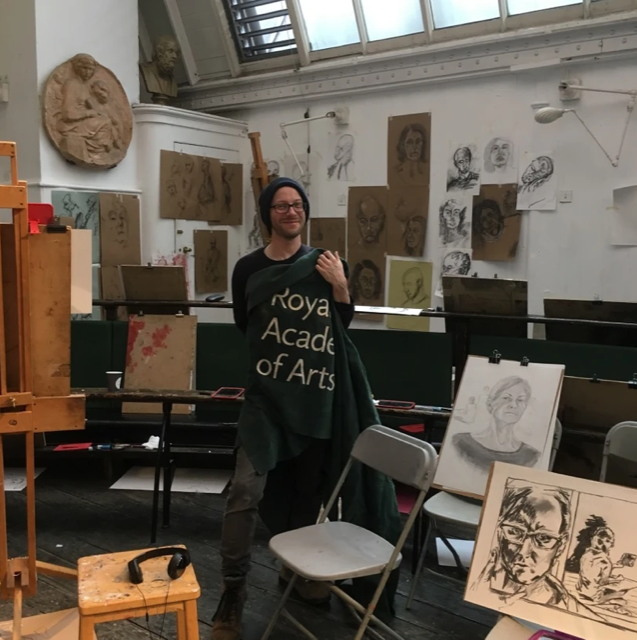
The role of the life model is inextricably linked with the Western academic traditions of fine art associated with the emergence of the art academies during the Renaissance, popularised in the 17th and 18th centuries by the Académie Royale de Peinture et Sculpture in Paris and the Royal Academy of Arts in London. The academies have become the filters via which the life model is interpreted and understood, shaping contemporary attitudes and giving rise to cultural paradigms suggesting that models are servants, or mercenary drawing instruments.
By extension, life models have been thought of as muses, providing the inspiration for artists to create their work via their emotional engagement. However, life modelling is a complex, skilled practice, models fulfilling myriad roles beyond those defined by these paradigms. Given the determining factors of motivation and context, modelling might itself become a physical mode of artistic practice within which the model uses their body as their medium to create ephemeral works of art within the realm of performance art. These self-choreographed or spontaneous artistic acts may occur either in creative symbiosis with (other) artists, or beyond the studio / life room environment in alternate contexts including museum and gallery settings. Differing contexts may foster new perceptual frameworks of understanding on the part of the viewer; removed from previous paradigmatic shackles, the models’ artistry may be unambiguously revealed.
This lecture will run from 17:00 to 17:50, followed by a Q&A session and wine reception.
This is a Cambridge Visual Culture event.
Speaker
Dominic Blake is a London based art writer and lecturer whose work is located at the core of an emerging art historical debate concerning the life model. His ongoing lecture series ‘Are Life Models Artists?’ has appeared at venues including The National Gallery, Mall Galleries and Royal College of Art. A life model at the Royal Academy of Arts, he is currently completing a translation of his lecture series into a monograph due for publication in 2025 with generous assistance from The Charleston Trust.
Access information
- The room is wheelchair accessible
- Step-free access is via an alternative entrance. Please ask at the enquiries office on arrival.
- For access enquiries, please email museum@classics.cam.ac.uk or call 01223 330402
Who: 18+
Booking: essential (see link below)
£££: Free
